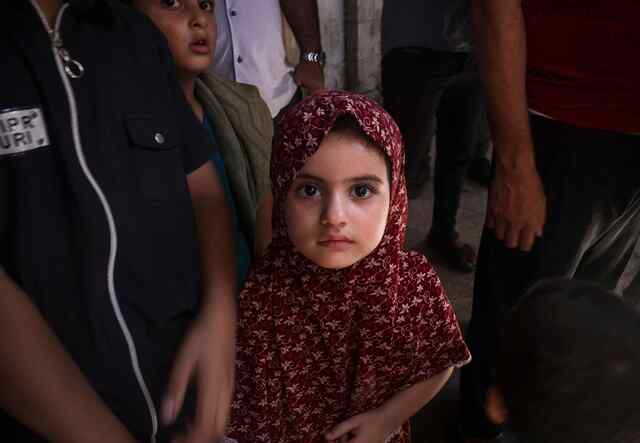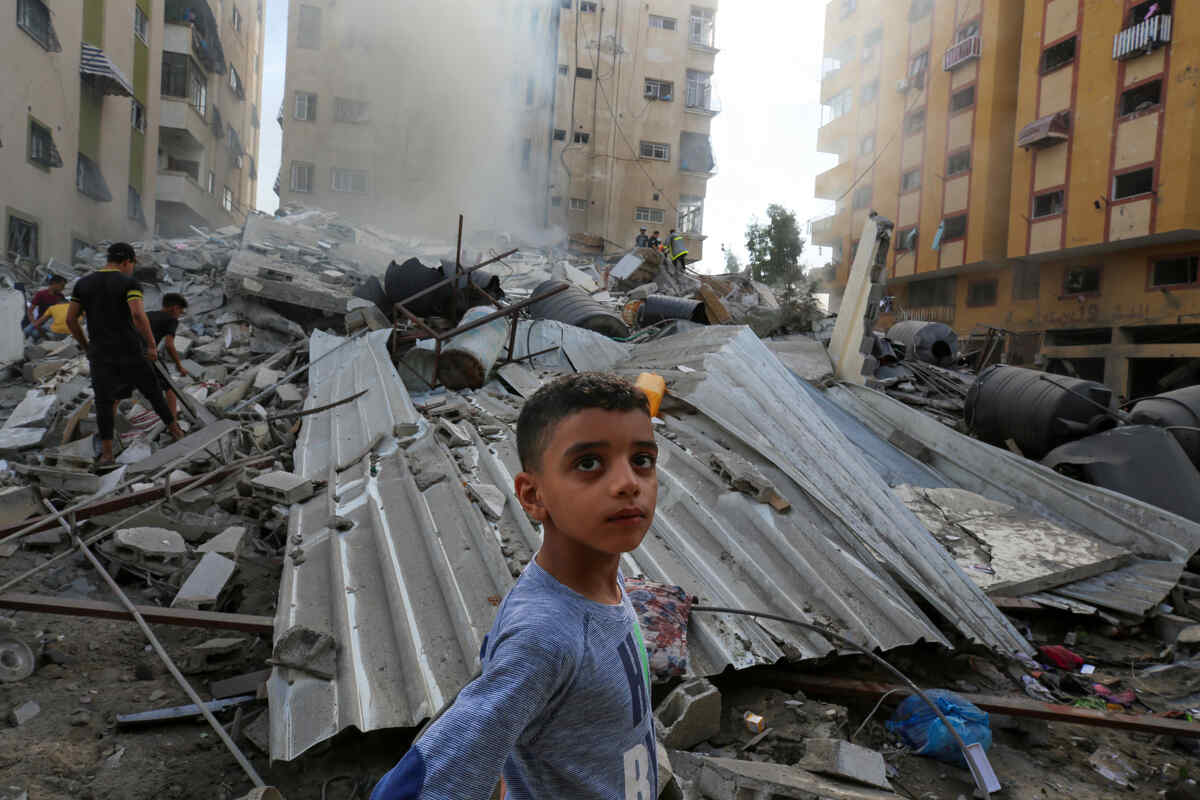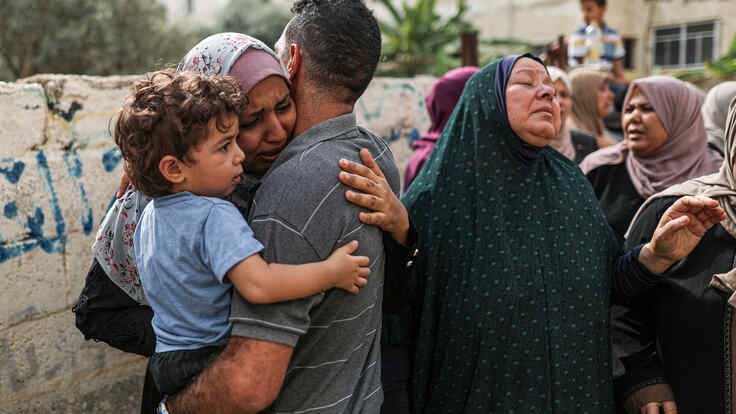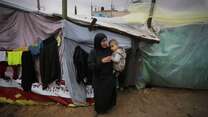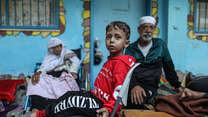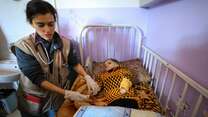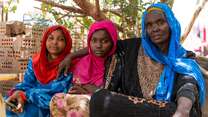Aid workers and civilians must be protected under International Humanitarian Law.
- The IRC expresses deep condolences to World Central Kitchen for the loss of 7 staff members in Gaza due to an Israeli strike while delivering food in a protected zone. All humanitarian workers and civilians must be protected under International Humanitarian Law.
- While the full impact of the incident remains unclear at this moment, we are committed to responding to the humanitarian crisis in Gaza as effectively as possible under these circumstances.
- This event comes a day after appalling reports of more than 20 civilians killed and massive destruction to Al Shifa Hospital in Gaza City.
- Gaza needs an urgent and sustained ceasefire. A ceasefire is crucial to shield civilians from additional harm and facilitate the necessary humanitarian efforts to save lives.
In Gaza, more than 2 million Palestinian civilians are facing peril and disaster every day. The secretary general of the UN calls this a “humanitarian catastrophe.” Following the work of IRC assessment teams on the ground, and commencement of aid flows from Egypt to Gaza, the IRC has initiated a response to the humanitarian crisis arising from the current conflict.
The escalating conflict in the Middle East on October 7 and since has created widespread death and destruction. As of January 2024, more than 26,000 people have been killed, including 10,000 children, and over 100 hostages taken by Hamas are still in captivity. Dozens of aid workers and over 150 UN staff have been killed.
The Israeli blockade of food, water, fuel, and essential medicines and supplies is inflicting immense suffering on Palestinians. The population also lacks access to electricity and 100% of Gazans are facing crisis levels of food insecurity. This is the highest share of people facing high levels of acute food insecurity that the initiative has ever classified for any area or country.
The health care system has collapsed, with attacks on hospitals leaving much of Gaza’s population without access to any treatment. Insecurity Insight recorded 345 incidents of violence against health care facilities and professionals across Gaza and the West Bank during the first seven weeks of conflict. As fuel reserves expire, doctors and nurses are becoming powerless to treat the sick and injured while ongoing border closures prevent patients in Gaza from traveling to Israel, the West Bank or East Jerusalem for treatment.
With 95% of Gazans lacking access to safe water and 1.7 million displaced into crowded settings, the IRC is warning of an imminent infectious disease outbreak in Gaza. As residents rely on contaminated water sources and lack access to proper sanitation and hygiene, waterborne illnesses like cholera and typhoid will inevitably spread.
Israel has severely restricted the amount of aid entering Gaza after October 7. Before the war, 500 truckloads of aid entered Gaza daily—with needs increased, a huge uplift in aid will be required, but far less is actually arriving. Aid delivery has been further constrained by the damage to roads, lack of fuel, and the displacement and death of humanitarian aid workers. Gaza’s recovery after the fighting ends will depend on whether, and how intensely, Israel maintains its policy of preventing basic goods and services from entering Gaza.
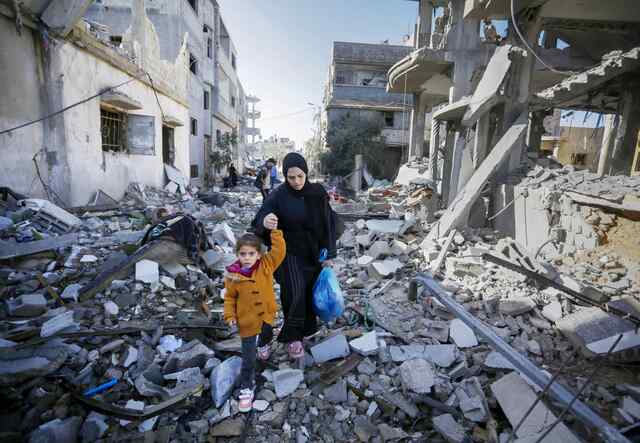
The IRC’s response in Gaza draws on our global experience and expertise in emergency response, as well as our longstanding presence in the region. Local partners have been leading the response in Gaza and we are supporting their objectives through financial, technical and operational support.
Emergency Medical Teams
The IRC and Medical Aid for Palestinians (MAP) have deployed four successive Emergency Medical Teams to provide emergency and life-saving medical care, including direct medical care at hospitals, and the distribution of medical supplies and pharmaceuticals. The team, composed of trauma doctors, surgeons, pediatricians and disaster experts, are offering surge and relief support to hospitals and providing life-saving medical care to injured Palestinians.
Mental health support for children
In partnership with Anera, the IRC is working to provide essential mental health and psychosocial support to Palestinian children. We are utilizing a comprehensive approach that prioritizes the needs of children between the ages of 4 and 18, to implement therapeutic activities including play, art therapy and life skills training. Our activities are designed to empower children to cope with their experiences, express themselves creatively, and develop essential life skills for the future, thereby promoting healing, resilience, and emotional wellbeing. By fostering a safe and supportive environment, we aim to mitigate the long-term impact.
The IRC has also partnered with Nafs to establish a Mobile Community Center (MCC) that will enhance the access of marginalized people, mainly children, to their residential areas and provide them with Mental Health and Psychosocial services in the West Bank and Gaza strip.
Medical supplies and pharmaceuticals
The IRC has procured or released 46 metric tons of pharmaceuticals and medical supplies which the IRC and our partners are distributing to support health facilities across Gaza. These include pediatric and psychotropic medicines as well as trauma supplies and are based on needs identified and coordinated across health actors working in Gaza.
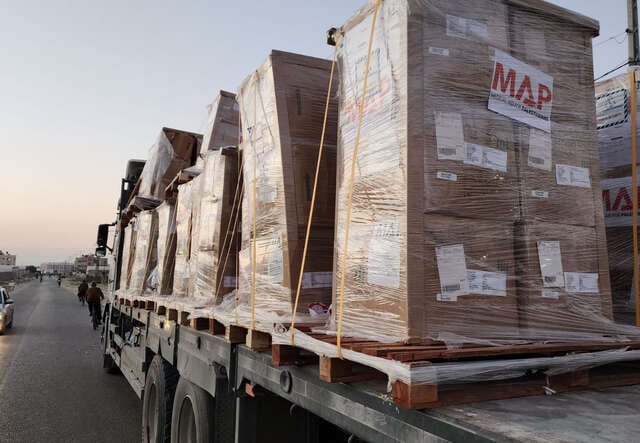
Support for displaced families
We have partnered with Palestinian NGO, Juzoor for Health and Social Development, to address the health and mental health needs of those displaced and to provide access to basic services for children and families. Together, we are providing critical services, including health services, psychosocial support and cash assistance, in more than 20 shelters throughout Gaza.
Helped families with basic needs
The International Rescue Committee (IRC) and Welfare Association (Taawon) partnered to combat the severe hunger affecting displaced families in Rafah, southern Gaza, where over one million people have been displaced and have sought refuge in what is considered Gaza’s last haven. The project worked to alleviate hunger and prevent starvation; improve the nutritional intake of the affected families by providing vital nutrients, vitamins, and minerals, with a special focus on supporting vulnerable populations such as children and the elderly; and enable these families to redirect their limited financial resources toward other essential needs, including health care or non-food items, thereby mitigating the economic impact on internally displaced persons.
The International Rescue Committee (IRC) is calling for a sustained ceasefire to protect Palestinians from harm, enable the release of all hostages, and allow for a step-change in the assistance provided to people across the whole of Gaza.
Urge Congress to call for a ceasefire.
“In a matter of weeks, Gaza became the most dangerous place in the world for civilians,” said Sam Duerden, the IRC crisis/team lead for the occupied Palestinian territory. “Tens of thousands of people have been killed, more than three-quarters of the population displaced and critical infrastructure destroyed. Right now, the people of Gaza need extensive humanitarian assistance to survive, but most of all the restoration of public services and the basic right to live free from fear.”
Learn more about why a humanitarian ceasefire is necessary for civilians in Gaza.
